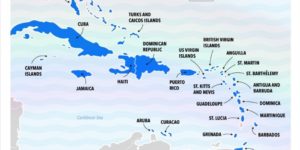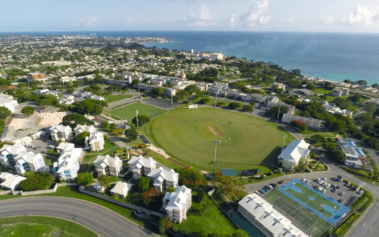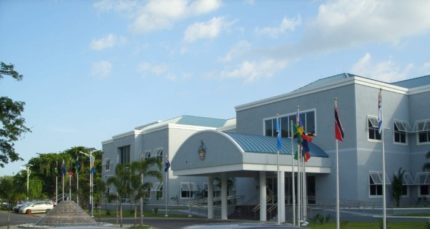BRIDGETOWN, Barbados, 16 January 2017 – Seven years on from the devastating earthquake in Haiti, countries from across the Caribbean are working hard to reduce the risks posed by seismic threats, as part of their wider drive towards sustainable development.
The magnitude-7.0 quake on Jan. 12, 2010, claimed around 150,000 lives and affected over three million people.
Earthquakes are the single-most destructive form of natural hazard in the Caribbean. Many countries within the region face the specter of future quakes, which occur when strain accumulation on segments of the adjacent tectonic plate boundary exceeds the breaking point. To a large extent, the resulting damage will depend on the choice of risk-management measures – notably building standards – that are implemented to avoid or reduce vulnerability to strong shaking.
Efforts to improve such risk management have gathered speed over recent months. More than 150 participants from around the region met at the Caribbean Urban Seismic Risk Forum in Haiti’s capital of Port-au-Prince in September 2016.
The forum provided an opportunity for Caribbean countries to chart a path to sustainable development through the exchange of experiences, information sharing and the joint development of the “Regional Roadmap on Urban Seismic Risk Management in the Caribbean.”
“It provides the basis for the kind of concerted action that is needed by a wide range of stakeholders in the region,” said Dr. Richard Robertson, director of the Seismic Research Centre of the University of the West Indies, whose institution was part of the team that crafted the Roadmap. “In any Caribbean island, a much larger proportion of the buildings and infrastructure were likely built before effective seismic codes were implemented and less than 2 percent of this stock is replaced per year. For this reason, the threat of damage to any one nation is potentially catastrophic.”
At the session, Haiti’s Minister of the Interior and Local Authorities François Anick Joseph emphasized the importance of managing seismic risk in a region that is seeing fast-paced urbanization, compounding the vulnerability of small, developing economies.
The Roadmap will assist stakeholders from local, national and regional levels, as well as public, private and civil society sectors, to identify, implement and report on actions taken in their various spheres of work on risk governance, understanding urban seismic risk, mitigation and preparedness, response, recovery and reconstruction, public awareness and education, risk finance and transfer, and business continuity planning.
Read more here



